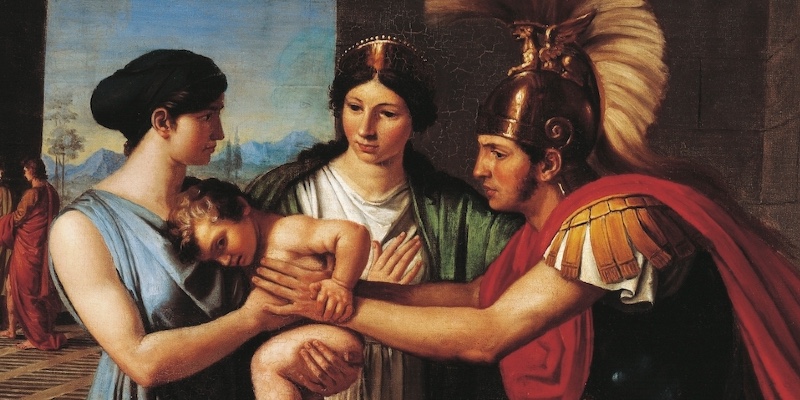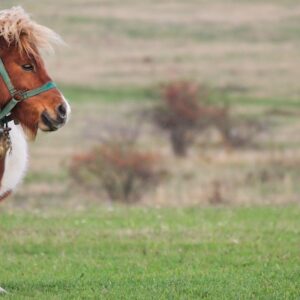Let’s look at three types of mothers who can drive action in crime fiction without being the flat-out-evil Bad Mother trope. I’m going to name these types The Status Queen, The Absent Mother (obviously not a term of my invention), and The Mom Who’s In It to Win It (aka The Hero).
I want to show how each type drives action in two novels of the 2020s, Lori Rader-Day’s The Death of Us (2023) and David Heska Wanbli Weiden’s Winter Counts (2020).
The Status Queen
This character type takes concern for appearances and social standing to such an extreme that she squashes the spiritual or emotional well-being of her children. In fiction, a Status Queen character is usually cast as a villain because she ultimately harms her family, even as she struggles to secure status for them.
Before we get to spittin’ on this type, let’s recall the psychoanalytic way of readings books where each character represents a trait that can manifest in nearly anyone.
Queen Ann Short Bear
Ann Short Bear is described in Winter Counts as a rich Osage woman who looks down on the people of the Lakota reservations around her from her heights of greath wealth. “Tall, thin, elegant, she … shopped for her clothes in Santa Fe, San Francisco, and Dallas” and she “demanded a monthly clothing allowance …in excess of what most people made here in a year.” What keeps her from being flat-out evil is that she wants her children to have the best of the best: Ivy League educations and high-salary careers. Grasping and grubby though these goals may be, when placed alongside Ann’s complete disdain for anyone’s suffering, they are at least indications that Ann wants something fundamental—to attempt to keep her children secure amidst the slings and arrows of late capitalism.
Winter Counts is set in contemporary times on the Rosebud and Pine Ridge reservations, and the story’s narrator, Virgil, happens to be in love with Ann’s daughter, Marie. Ann’s role in Virgil’s story is simple: she exists as a nearly-comic thorn in his side, driving him to greater love and appreciation of his down-and-out friends, whose insights he’ll need as the story progresses. Ultimately, the reader is left to form their own opinion about how much Ann knows about the true costs of staying on top of the heap in her status-defined world.
Queen Patty: The Extreme Upholder
“Status” for a Status Queen character often means “status quo.” As in Winter Counts, the Status Queen in The Death of Us represents status as defined by the generation prior to the main character’s generation. Patty Kehoe, “patrician” to the nth degree, is small town royalty, caring for her former police chief husband who has been felled by time and lives mute and wheelchair bound, as she fends off threats to her standing from multiple corners of the community.
Pencil-browed and aging angrily, Patty oozes vitriol for her daughter-in-law, Liss Kehoe. Liss, one of the main characters in The Death of Us, laments, “Why couldn’t Patty be the one losing her sharp edges, instead of her husband? Her mother-in-law could have used some filing down.” Patty goes to extremes to antagonize Liss, who is parenting Patty’s grandson. Anxiety about why Patty would be so awful to Liss creates a drive for the reader to learn more, and it drives Liss, herself, to dig further into the motives of those nearest her, even if what she finds is world-shattering.
The Absent Mother
The Status Queen character, in both Winter Counts and The Death of Us, drive the story forward most directly by egging main characters on in uncomfortable ways, and by raising the reader’s curiosity about what’s behind their extreme efforts to preserve the status of the previous generation. These characters maintain an overbearing, antagonistic presence in these novels.
By contrast, absent mothers in both stories set things spinning in a fundamental way by the extreme absoluteness of their absence.
Two Absent Mothers of Two Teen Boys
The biological mother of the teen boy Liss raises in The Death of Us disappeared when he was an infant and is early on suspected to have come to a tragic end. She set Liss’ parenting-by-choice in motion when she placed her son in Liss’ arms as one of her last acts before diasappearing. The biological mother of the teen nephew Virgil is raising in Winter Counts was Virgil’s own beloved sister, taken too soon by a car wreck. Her death prompted Virgil to choose to care for and protect this boy at any length, in a world where drugs and violence contaminate everyday life.
By serving as the inescapable backdrop for two main characters’ paths of parenting by choice, these bio mothers’ absences make the nobility of choice more visible.
More to it?
I’ll venture out into deeper psychoanalytic waters and say that these biological moms’ early absence from their stories might also be said to echo the disappearnace of a biological mother’s personhood when conversations about pregnancy are weighted heavily on the welfare of the unborn child. Although neither of these books deal even remotely with reproductive choice on the explicit level, they both present bio-mothers as erased (through disappearance or tragic death). And they both elevate choice, itself, by elevating main charaters who are parents by choice.
The Mom Who’s In It to Win It
This character is a mother or mother figure who is heroic in the odds she goes against, the discomfort and danger she throws herself into, and the unwavering tenacity she shows, as she struggles to help a kid who may or may not want the help, but who definitely needs it.
In Winter Counts, this role is filled by both the main character, Virgil, and his romantic partner, Marie, who wants to nurture and support the growth not only of Virgil’s nephew, but of her entire tribal community through her work with food distribution. In The Death of Us, Liss is unquestionably ready to lay down her very life, either in small, painful increments or all at once, for the boy she’s raised.
Interestingly, there are a couple of additional traits Marie and Liss share: both are professionals battling bitter, unethical, toxic bosses at work and hot-footing an impossible dance with a Status Queen at home (or in their family lives). And both are parental figures by choice trying to help teen boys at risk of sliding off the edge of safety into the darkness below.
Not the Killing Kind
Boots Marez is the Mom Who’s In It to Win It in my debut novel, Not the Killing Kind. As head of school at a progressive K-8 academy she founded to help undocumented families, Boots has to routinely fend off challenges to her vision of education from both a Status Queen on her parents’ board and a sociopathic supervisor. When her adopted teen son Jaral is jailed for the murder of a former student, but doesn’t appear to ask her for any help, Boots wonders whether he wishes he’d been allowed to stay with his bio-mom, now absent from his life due to her struggles with addiction.
Despite Jaral’s growing distance from her, Boots risks her reputation, her livelihood, and her life to spotlight a community used to living in the shadows to find the real killer and free her son, and discovers a darker web of secrets that’s been hiding in plain sight.
Take a look at Not the Killing Kind, plus Winter Counts and The Death of Us if you’re a crime reader who could get lost in tales of parental figures going to extremes, knocking aside Status Queens and pushing forward to guard vulnerable kids, even while the pain of absence and loss threatens to overshadow all their efforts.
***


















